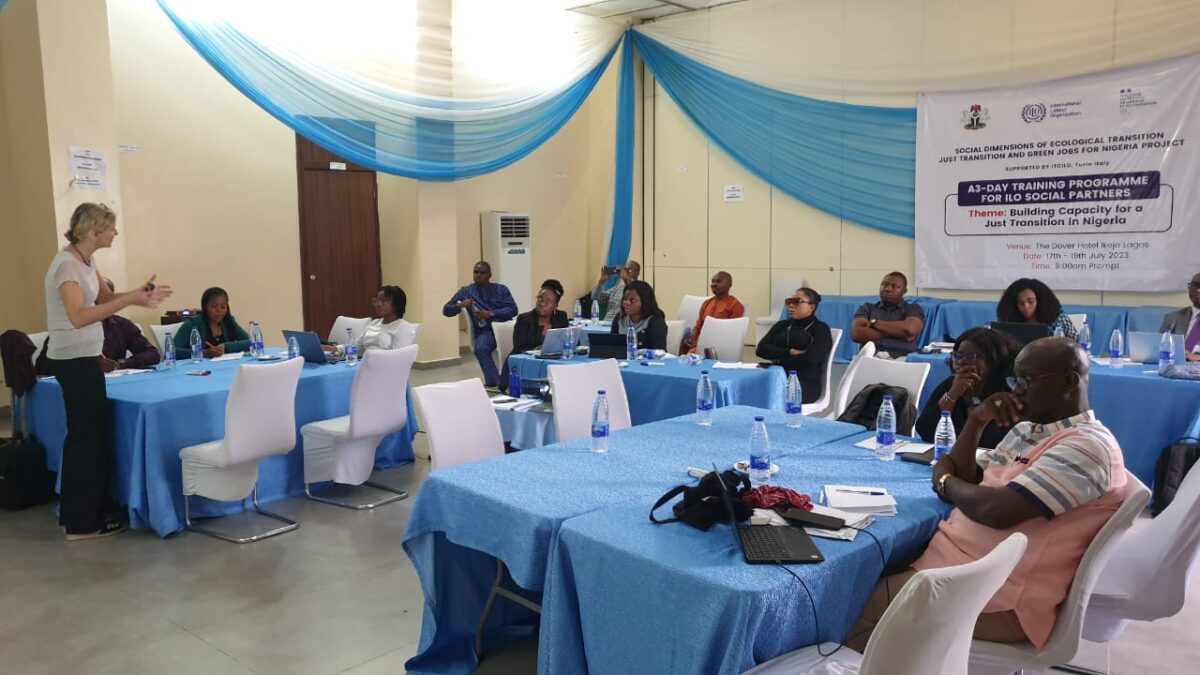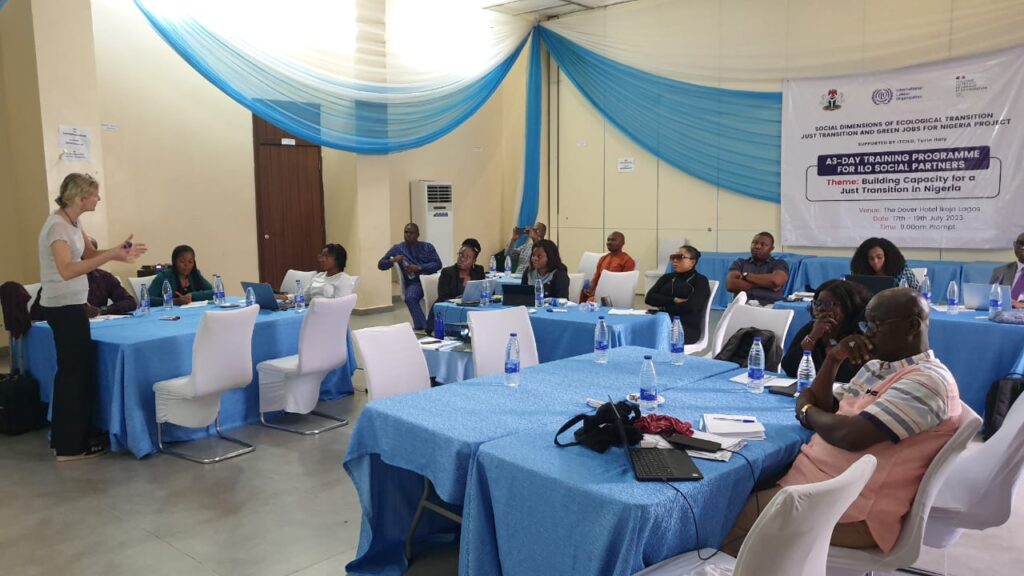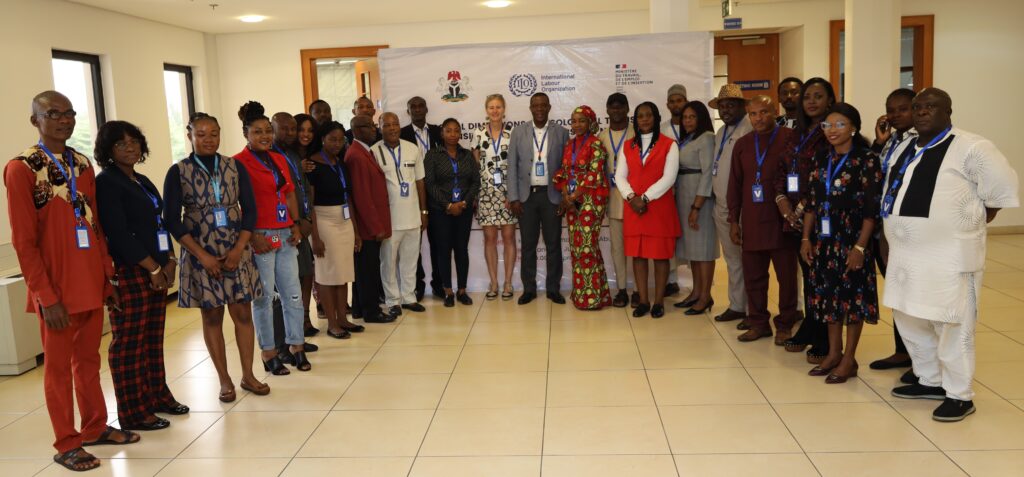
The training programme was oriented along the recommendations provided in the ILO Guidelines for a just transition towards environmentally sustainable economies and societies for all. Participants gained a better understanding on how to reflect aspects around labour market impacts and social justice in the process of shaping a comprehensive set of policies to successfully implement climate change commitments.

Nigeria’s share in global greenhouse gas emissions remains small, yet the country is amongst the most vulnerable to climate change. The reasons are manifold. Nigeria’s economy and population are largely dependent on natural resources and functioning ecosystem services. Low levels of socio-economic growth and job creation deprive the country from the resources to buffer and adapt to the worst effects of climate change. The imperative to halt climate change by shifting to a low-carbon future is clear. However, this shift brings about substantial changes for Nigeria’s economy and society. In the long-run, gains can be expected in terms of employment, social development and economic growth when investing into future-oriented industries, technologies, and jobs. Still, the implementation of climate policies will inevitably impact the operations of enterprises and the lives of workers.
Harnessing the positive impacts associated with such a shift while mitigating negative impacts on the population and economy requires deliberate policy choices. The ILO is committed to support countries in their transition to a sustainable future that addresses the imperatives of decent work. In 2015 the ILO Governing Body adopted the Guidelines for a just transition towards environmentally sustainable economies and societies for all. The Guideline is aimed at enabling governments, workers, and employers to leverage the process of structural change towards a greener, low-carbon economy, create decent jobs at a largescale and promote social protection.
Internationally, progress has been made towards a clear political recognition of the challenge. The ILO Guidelines for a just transition provides a framework on guiding principles and key policy areas to governments and social partners. Given that no one size fits all, it is important for each country to develop just transition priorities and instruments based on its specific context.
The ILO project “Social Dimension of Ecological Transition” aims at mobilizing government, workers’ and employers’ organizations and development partners to accelerate climate action with decent work and just transition for all. The project also strives to strengthen institutional capacity for the design and implementation of integrated evidence-based just transition policies; promote social dialogue platforms to helped lay the foundation for a just transition; develop and pilot just transition policies conducive to job creation, skills development in green sectors, and adoption of social security measures; and disseminate lessons learned from the intervention to inspire other countries and institutions in Africa to initiate just transition mechanisms and policies.

Against this backdrop, the ILO, with the support of the ITCILO, provided a dedicated training / capacity building programme to government, workers’, and employers’ representatives in Nigeria. The training programme consisted of a 3-days face-to-face training programme for participants in Abuja, held from 12th to 14th July 2023 while the training for participants in Lagos was held from 17th to 19th July 2023. About 50 participants were trained in both Abuja and Lagos. Participants who completed the training were also awarded certificates.
The training programme was oriented along the recommendations provided in the ILO Guidelines for a just transition towards environmentally sustainable economies and societies for all. Participants gained a better understanding on how to reflect aspects around labour market impacts and social justice in the process of shaping a comprehensive set of policies to successfully implement climate change commitments. The course contents evolved around the interlinkages of climate policies with macroeconomic and growth policies, labour market policies, industrial and sectoral policies, enterprise policies and policies on skills development, rights, social protection and occupational health and safety.
The following topics were at the centre of discussion during the capacity-building programme:
- Why climate policies matter for social justice
- The employment impacts of climate policies
- The just transition: 9 building blocks for an economically and socially just future
- The role of social dialogue and partnerships in shaping a just transition
- Examples of just transition policies
- Gender equality and the role of youth in shaping the just transition
- Investing in a just transition
